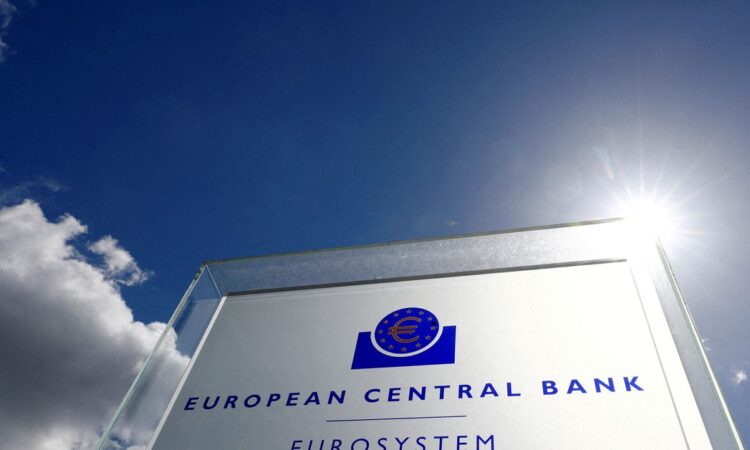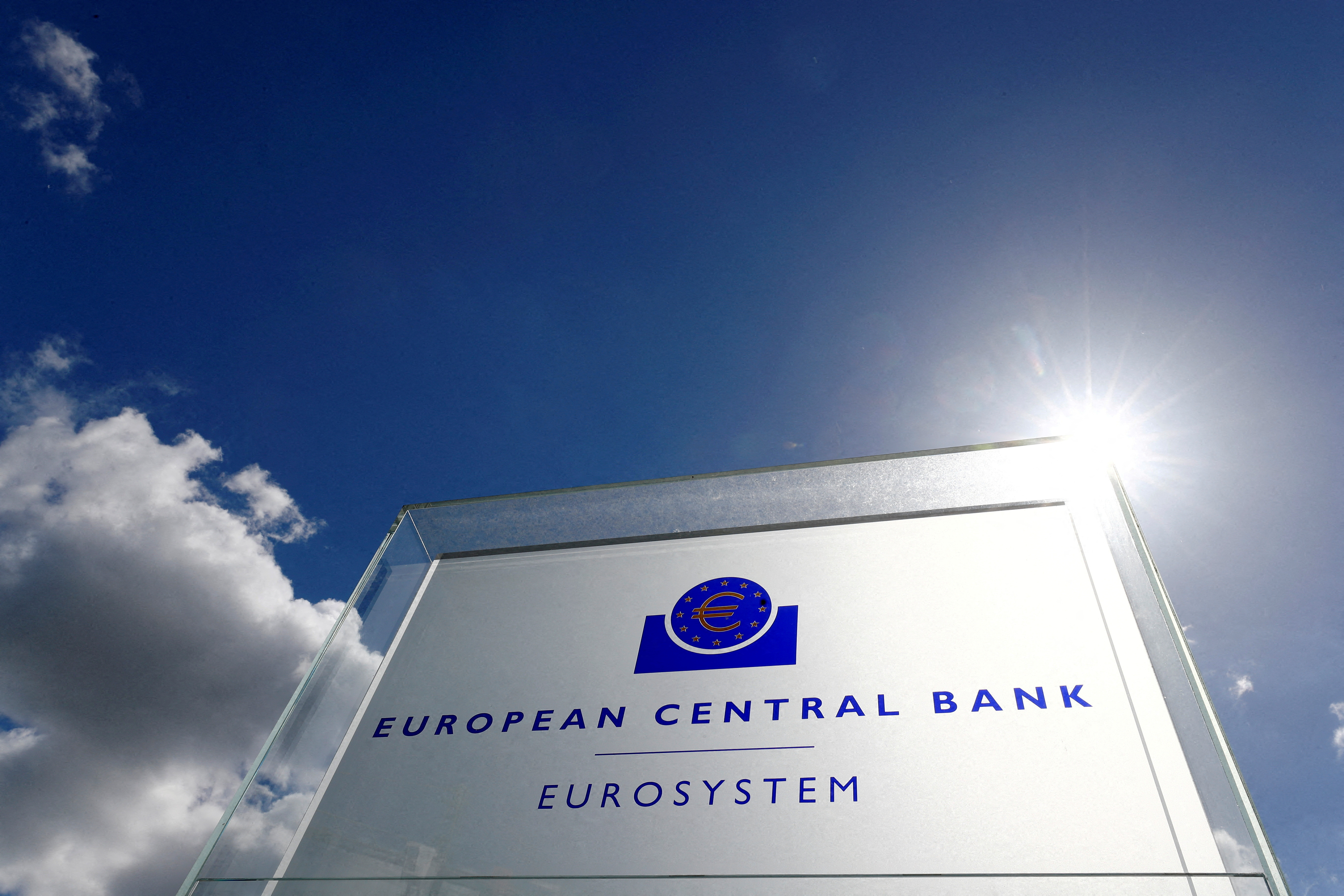

The logo of the European Central Bank (ECB) is pictured outside its headquarters in Frankfurt, Germany, April 26, 2018. REUTERS/Kai Pfaffenbach//File Photo
FRANKFURT, Aug 4 (Reuters) – Underlying inflation in the euro zone has probably peaked, pointing to slower growth in other prices too, the European Central Bank said on Friday.
The update was likely to cement expectations for the ECB to halt its streak of nine consecutive interest rate hikes in September as underlying inflation, which filters out the most volatile prices, is closely watched by the euro zone’s central bankers.
“Median and mean underlying inflation measures suggest that underlying inflation likely peaked in the first half of 2023,” the ECB said in an article.
The central bank listed around 10 indexes of underlying inflation — ranging from measures that simply take out traditionally volatile food and energy prices to more sophisticated ones that use mathematical models to focus on persistent components.
It found that the majority provided a useful signal for where overall consumer prices were headed over the “medium term”, a deliberately vague term that is generally believed to mean several years.
Most of these measures were now “showing signs of easing” and the latest reading for July was “broadly in line” with the ECB’s own expectations, the central bank added.
Excluding energy and unprocessed food, consumer prices increased by 6.6% in the euro zone last month after a 6.8% rise in June, data showed earlier this week. Once alcohol and tobacco are also taken out, however, inflation was stable at 5.5% due to an acceleration in the prices of services.
Yet the ECB said its own gauge of the Persistent and Common Component of Inflation (PCCI) “appears to have started to decline for services too”.
The ECB said its measures of underlying inflation were still in a wide range of between 2.9% and 6.9% in June but those with the highest predictive power lay “in the lower half of the range”.
The ECB officially targets headline inflation, which stood at 5.3% in July — down from the previous month but still a far cry from the central bank’s 2% objective.
Reporting By Francesco Canepa
Editing by Tomasz Janowski and Christina Fincher
Our Standards: The Thomson Reuters Trust Principles.





